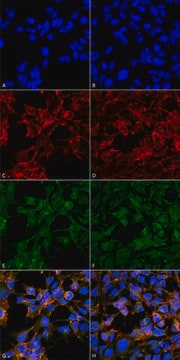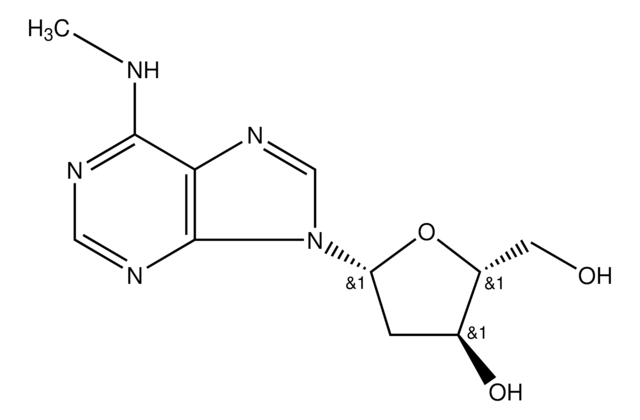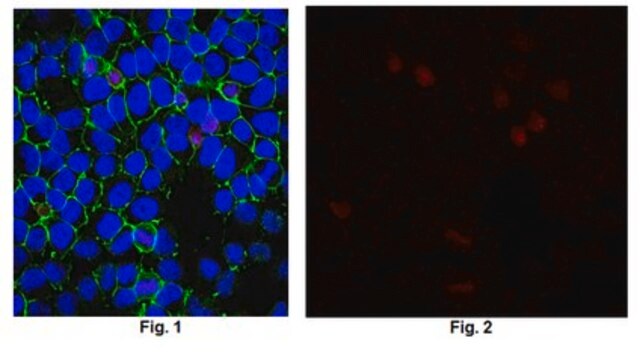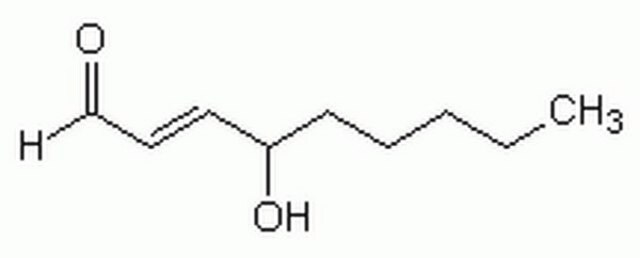H5653
8-Hydroxy-2′-deoxyguanosine
≥98% (TLC), DNA damage biomaker
Synonyme(s) :
8-Oxo-7,8-dihydro-2′-deoxyguanosine, 8-Oxo-dG
About This Item
Produits recommandés
product name
8-Hydroxy-2′-deoxyguanosine, ≥98% (TLC)
Niveau de qualité
Pureté
≥98% (TLC)
Température de stockage
2-8°C
Chaîne SMILES
O=C1C(NC(N2C3CC(O)C(CO)O3)=O)=C2NC(N)=N1
InChI
1S/C10H13N5O5/c11-9-13-7-6(8(18)14-9)12-10(19)15(7)5-1-3(17)4(2-16)20-5/h3-5,16-17H,1-2H2,(H,12,19)(H3,11,13,14,18)
Clé InChI
HCAJQHYUCKICQH-UHFFFAOYSA-N
Application
- as a standard to analyse the oxidative DNA damage in the placenta of normal and abnormal pregnancies by electrochemical detection
- as a standard for high performance liquid chromatography (HPLC) with electrochemical detection (ECD) measurement
- as a standard for HPLC and as a urinary marker of oxidative stress in order to assess the potential antioxidant activity of green coffee bean extract (GCBE) in vivo
- as a standard for LC/MS/MS analysis
Actions biochimiques/physiologiques
Code de la classe de stockage
11 - Combustible Solids
Classe de danger pour l'eau (WGK)
WGK 3
Point d'éclair (°F)
Not applicable
Point d'éclair (°C)
Not applicable
Équipement de protection individuelle
Eyeshields, Gloves, type N95 (US)
Certificats d'analyse (COA)
Recherchez un Certificats d'analyse (COA) en saisissant le numéro de lot du produit. Les numéros de lot figurent sur l'étiquette du produit après les mots "Lot" ou "Batch".
Déjà en possession de ce produit ?
Retrouvez la documentation relative aux produits que vous avez récemment achetés dans la Bibliothèque de documents.
Les clients ont également consulté
Articles
DISCOVER Bioactive Small Molecules for Nitric Oxide & Cell Stress Research
DISCOVER Bioactive Small Molecules for Nitric Oxide & Cell Stress Research
DISCOVER Bioactive Small Molecules for Nitric Oxide & Cell Stress Research
DISCOVER Bioactive Small Molecules for Nitric Oxide & Cell Stress Research
Notre équipe de scientifiques dispose d'une expérience dans tous les secteurs de la recherche, notamment en sciences de la vie, science des matériaux, synthèse chimique, chromatographie, analyse et dans de nombreux autres domaines..
Contacter notre Service technique











